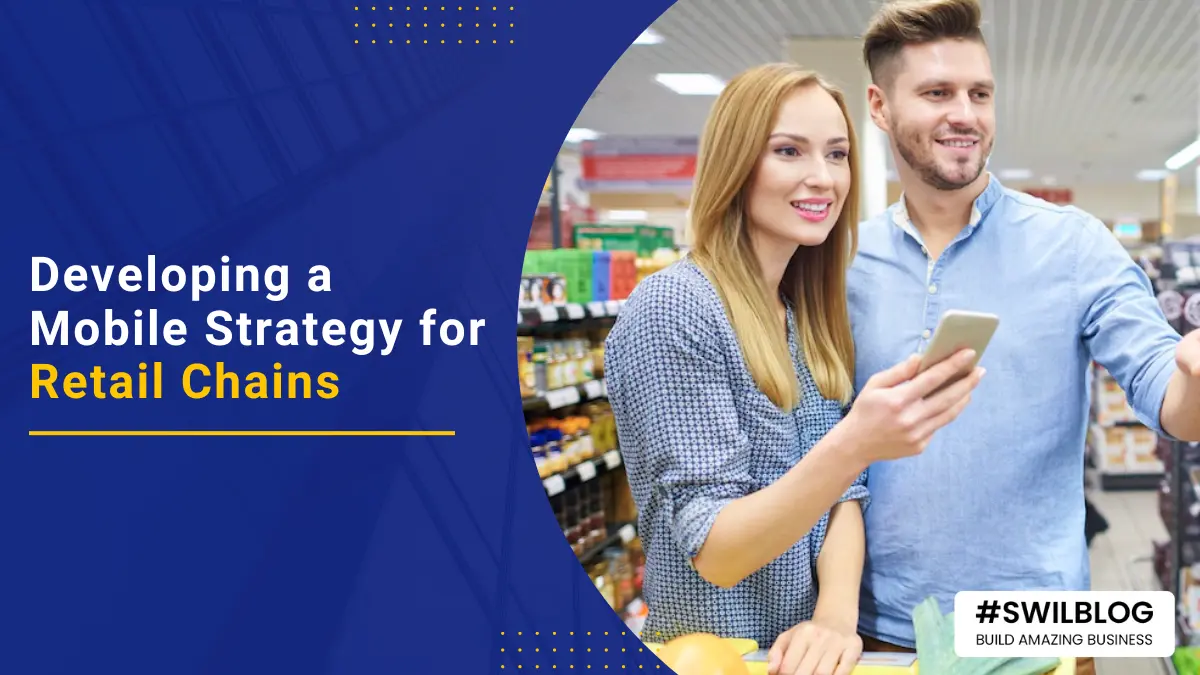Introduction:
Businesses now approach customer interaction and boost in-store sales completely. Offline marketing strategies are dominated by strategies like in-app marketing, email marketing, instant push alerts, and many others.
Buying behaviors have been impacted by the mobile revolution. People prefer to first search online for stores, make a comparison for their desired goods, read reviews, and then either visit the stores or shop online, as opposed to going from one store to another. Therefore, businesses are shifting to creating a successful mobile strategy to ensure constant customer care and boost retention levels.
Article Content-
- What is a Mobile Strategy?
- Why is it necessary to create a mobile strategy?
- The benefits of an effective mobile strategy
- Tips for a successful mobile strategy that can direct customers from apps to stores include
- Conclusion
What is a Mobile Strategy?
A mobile strategy is a method for a business to include mobile devices into its entire marketing strategy. Since smartphones are used by more than 80% of Internet users, a mobile marketing strategy has become crucial for the expansion of any business. It takes careful planning and research to create a mobile strategy from the start that will fit with the company’s vision, attract a large customer base, and encourage customers to make purchases at online or physical stores. A successful mobile marketing strategy boosts sales and attracts as many customers as possible.
Why is it necessary to create a mobile strategy?
The majority of people in the world now shop using their mobile phones. Therefore, now would be the perfect time for businesses to implement a mobile marketing strategy. Some of the reasons for the adoption of a mobile strategy are as follows:
- This leads to faster communication between businesses and their customers.
- Increasing brand credibility when they communicate with customers.
- It offers a customized method of dealing with customers.
- Your users become more valuable as a result of push notifications, emails, texts, app updates, etc.
- Users may quickly find out the best pricing, store locations, product reviews, and other information they need before making a purchase.
- A target audience can be reached with ease using a successful mobile strategy.
- Increase the scope of business improvements as user behavior analysis becomes simple.
- Mobile marketing is transforming how businesses promote and sell their products to bring in customers and raise their reputation globally.
The benefits of an effective mobile strategy
- Smartphone scan-and-go solutions eliminate the need for physical self-service checkouts because customers can use a mobile app to pay in-aisle.
- This frees up significant space for additional product lines or for in-store activities like cooking courses or spa services that will boost in-store sales.
- Retailers can directly deliver targeted deals and discounts to customers using mobile devices as they purchase.
- In order to promote suggested products and remind customers to pick up their frequently purchased products, retailers can gather data on user activity and purchase patterns from customer retention.
- Maintaining current customers is significantly more cost-effective than finding new ones. By encouraging customer retention, loyalty and rewards programs are essential to raising consumer lifetime value (LTV).
Tips for a successful mobile strategy that can direct customers from apps to stores include
A research-and-analysis-based mobile marketing strategy can do miracles for a company’s bottom line. You can make use of a few of the following recommendations to create a mobile strategy:
1. Using bookmarks, wish lists, and similar methods on different mobile applications
By delivering their favorite content from several networks to your business application, you can increase customer loyalty. You can then give them another reason to visit regular stores. You can include chat features in your app to encourage communication so users can learn about the nearby grocery stores.
2. App Store Optimization (ASO)
Using titles, keywords, ratings, and other ranking factors, app store optimization is the strategy of getting customers to download your business application. ASO can be effective in bringing constant traffic to your product. Users can be directed from the app to the store by concentrating on the essential components of the page and improving detection capabilities when searching.
3. Customize the way you interact with customer
The use of mobile strategy provides multiple options to provide your users with personality, increasing their value. Based on their interests and behavior as determined by the app’s actions, you can send emails, product recommendations, special offers, and other communications. By delivering notifications to users based on their location and time zone, you may also connect them.
4. Build a geozone around your physical stores
Users can be encouraged to shop at your primary store by geo zoning physical stores and providing push notifications to customers who have your app. Depending on their app activity and previous order history, you can send push alerts to them.
5. Increasing-discounts strategy
The mobile strategy can be used successfully to both attract new customers and maintain existing ones. Only if they make purchases in the store can you give customers via the app exclusive deals, coupon codes, combo offers, etc. When you shop at the store, you can also give them a subscription service and a few more complimentary services.
6. Using video marketing to promote products
Recent studies have shown that using digital videos to promote a business and draw customers is simple. Reviews are no longer as popular as videos as a form of content. Videos now attract more visitors than reviews do. Videos can be posted on mobile target pages together with user-generated content, and users can purchase gifts at the end of the videos.
Conclusion
Mobile marketing has been successfully used to encourage individuals to move from applications to physical stores. Apps can be made and run through app stores to efficiently implement strategies. Mobile apps make it simple for businesses to reach out to potential customers and pull them in any way they can.
As you gain experience using this strategy, you’ll be able to make improvements and better fulfill both your needs and those of your customers.
It’s acceptable if your objectives change or if new market segments are found. To ensure that your mobile marketing strategy remains effective, use your strategic plan as a guide. It’s crucial to regularly review your strategic plan to make sure it’s still working.








